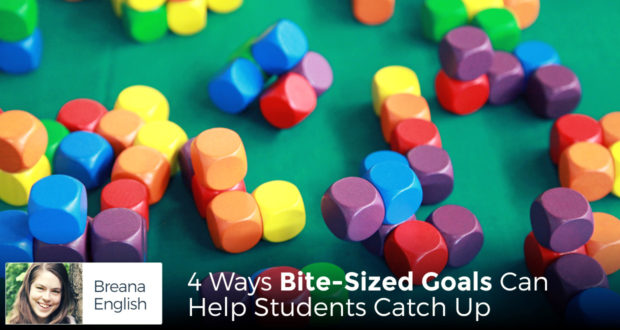Summary
Breana English – a homeschooler teacher and Christendom grad – brings 4 encouraging tips to keep things small and doable, and engaging!By January, though, things are often starting to unravel. Christmas break has come and gone, leaving behind cookie crumbs, decorations that really ought to be taken down before Lent begins, and a pile of work waiting for you to catch up with it.
Before you know it, months have gone by, and catching up is something you just consign to next year’s to-do list.
When I’m behind, I’m tempted to make grand catching-up plans. I won’t leave the computer until I’m completely caught up on grading and lesson planning.
This is the afternoon every bit of laundry in that gigantic pile will finally be washed. I will clean every square inch of the house this weekend and finally take down the Christmas tree (or at least hang a few eggs on it for Easter).
But trying to get caught up all at once can end up being overwhelming and discouraging. Both for myself and my students, I’ve found it’s often better to take small bites, by setting modest goals over a longer period of time.
So, how can bite-sized goals help students catch up on schoolwork?
1. Bite-Sized Goals Are Doable.
When a student has fallen behind in school, even thinking about how much there is to do can be paralyzing. If your student has to catch up on four papers, five chapters of science, thirty lessons of math and six vocabulary tests, how do you even figure out where to start?
It’s easy for students to feel that it’s impossible to do that much and that there’s no point in even starting.
Instead of focusing on the big picture, try setting just one easily attainable goal per subject for your student. Can he do a half a lesson of math? Write one paragraph of a book report? Study five words for a vocabulary test? Then don’t worry about the rest for today.
Small goals help make school assignments doable again.
2. Bite-Sized Goals Quickly Create a Sense of Accomplishment.
When you’re looking at a pile of things to be done, it’s easy to feel discouraged. It’s even easier when those things should have been done yesterday, last week, last month or last year.
Finishing a bite-sized goal allows a student to quickly feel a sense of accomplishment. He can do this! It is possible! Completing even the tiniest of assignments can help your student feel motivated and successful.
3. Bite-Sized Goals Add Up.
A chapter or half a lesson per day might not seem like much at the time, but small goals add up over time and more quickly than you might think! Even if she just inches along at first, doing half a lesson of math a day, your student will eventually finish the entire book.
Plus, it’s exciting to watch baby-sized steps gradually build up to large accomplishments!
4. Bite-Sized Goals Help Create Habits.
There are times when I push myself to get caught up all at once. However, I’ve found that when I do, it’s not usually long before I’m falling behind again. It’s easy to get caught in a cycle of always getting behind and then racing to catch up again.
Earlier this year, I decided that I would grade four papers a day until I finished them. What do you know? This actually helped me establish a routine of sitting down and grading papers every day.
A student who does a half a lesson of math every day develops the habit of doing math every day. Eventually goals can become larger ones, but keeping them bite-sized at first makes it easier to establish a pattern of finishing school assignments daily, a habit that will help your student keep from falling behind again in the future.
Setting bite-sized goals may not work for everyone, but if your student is overwhelmed at even the thought of catching up, I encourage you to try it!
What tips do you have for making catching up on schoolwork less overwhelming?

 Seton Magazine Catholic Homeschool Articles, Advice & Resources
Seton Magazine Catholic Homeschool Articles, Advice & Resources

